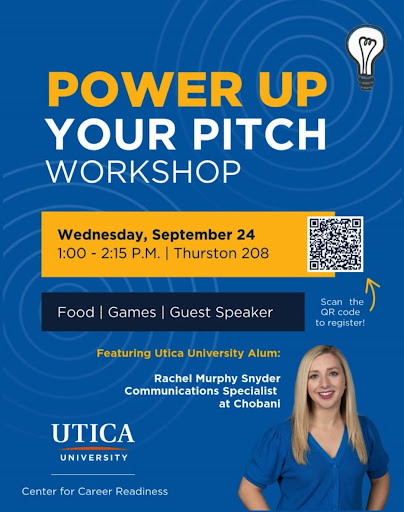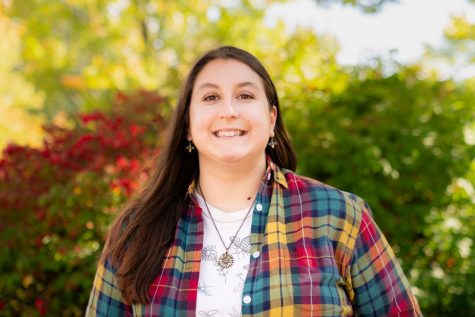- Community
- Editorials
- Featured
- Features
- Local
- Main Menu
- Media
- National
- News
- News
- On Campus
- Previews
- Staff
- UC Profiles
- Web Content
Q & A: Utica mayoral candidate Celeste Friend
January 27, 2023
On Jan. 7, Celeste Friend announced she is seeking the Democratic Party nomination for Mayor of the city of Utica.
According to a press release, Friend would be the first woman to receive a majority party nomination, and if elected, will be the first woman mayor of Utica.
Tangerine Managing Editor Hollie David sat down with Friend for a question and answer session. Transcriptions have been edited for clarity.
Q: What should the citizens of Utica know about you?
A: I’ve lived in Utica for 20 years, that’s really important to me. I’ve lived here longer than I’ve lived anywhere else in my life. I have a doctorate in philosophy and I taught full-time for a long time, and that was what got me to the Mohawk Valley, a teaching job at Hamilton College, and then that ended in 2007, and I decided I wanted to stay. I had already bought a house and just really fell in love with Utica. At that point, I started teaching part-time, but then also started a small business where I designed, produced and marketed a line of sterling, silver jewelry. You can see that online, Celeste Friend Designs. I also became the executive director of an arts festival, as my jewelry put me into the whole world of high-end art festivals.
Then in 2020, I joined the [Utica] common council. I ran in 2019 and got on to the council in 2020 so I’ve done a lot of different things, teaching and running a small business and being an executive director.
Q: What inspired you to run?
A: I never expected, when I ran for council, that I would end up three years later running for mayor, or four years later. I’d always been somebody who thought a lot about politics, but then in 2016 and not because of President Trump, but because of the very active democratic primary presidential. In terms of the kind of politics, I wanted for the whole world or at least you know, for the country, for my society, etc. When I kind of looked around me at home here in Utica, I knew that our own politics weren’t measuring up to that, so I decided that I wanted to, you know, be part of contributing to a different kind of political culture here in Utica.
Q: What projects have you worked on in the past?
A: Well, I’ve worked on sustainability issues, so I was elected in November of 2019, just a few days, less than a week after the Halloween floods, which really affected a lot of people here in South Utica. So they’re two types of floods, one is when a river overflows like in Saquoit but the other is when a storm drain system can’t accommodate all the water and so it stays up on top of the ground. So I’ve been very active ever since then, in flood mitigation, I go to the Sauquoit Creek Basin Intermunicipal Commission regularly. I’ve worked really closely with the administration to make sure that we’re spending enough money on flood prevention, which mostly is about making sure that our storm drain system is adequately maintained, you know, storm drain systems tend to fill up with debris, and then they don’t work.
I also worked hard on transparency issues when I joined the council. They have this little thing that they would say at the beginning of the meeting, they would want someone to make a motion to waive reading the minutes, but there were no minutes and yet they were doing it anyway. So they were going through these really weird motions of pretending to waive the minutes and I said on the floor of the council like I would point this out, this is bizarre. I would say, ‘no, I’d like to read the minutes, somebody, please read the minutes,’ and of course, there were none. Pretty soon, they started taking minutes and publishing the minutes. So That kind of transparency stuff was, it has always been really important to me.
Q: What are your goals for Utica if elected?
A: I have three big goals. One is to carry on with the transparency work that I’ve already done a lot of. I want to develop just much better ways of making government transparent to the people of Utica, and to communicate regularly, and effectively with constituents all across the city. So, If you’ve ever visited the city website, it’s a disaster. I’d like to improve the city website both so that people can better access city services through a good functioning, well-designed website and also so that information is readily available to them. I want to hold lots of town halls. I want to hold regular open office hours as a mayor. I want to do all that kind of transparency work.
The next thing I really care about is the livability of our neighborhoods and that ranges from things like sidewalks to make sure that we have good well, maintained clear sidewalks everywhere in the city. But it also means investing in our housing stock, you know, Utica has a really wonderful housing stock, but it’s beginning to sort of wear down a little bit. We need to invest more and provide funds to property owners so that they can put roofs on and windows and repair porches and things like that. So I think that’s really important. I want to see what we can do as quickly as possible to get lead out of our homes. That’s a livability issue. So I think of all of that stuff as livability, making neighborhoods safe and clean and walkable and accessible for everybody who lives in them.
The third thing is sustainability. So I want us to get ready for climate change, which is already here. And some of those things from livability sort of overlap. So, sidewalks are green infrastructure and a green kind of transportation. But I think the city needs to do a lot to get ready for the climate crisis that we’re already living with. And it means flooding as we talked about before, but it also means converting our fleet to an electric fleet as quickly as possible. Becoming, you know, if not a carbon neutral at least sort of decreasing our reliance on fossil fuels as quickly as possible and also getting ready for climate change. It’s going to come anyway, so I worry about heat waves and I worry about making sure that people in all neighborhoods have access to cooling centers and splash pads for children. We need to plant as many trees as quickly as possible in the city because they will cool down our neighborhoods and reduce the heat island effect. So we need to do all sorts of stuff like that so that people suffer as little as possible from the climate crisis.
Q: Voter turnout for college students is usually fairly low, do you hope to change this in any way?
A: Well we love to get into Utica University, and talk to students who are living on campus or living around the campus and do voter registration drives. So we’d be very happy to do that and we’d be happy to connect with any students who are interested in partnering with us on voter registration drives. The first election that I’ll be facing will be at the end of June, so school will be out. But of course, lots of students live off-campus year-round and you know, we’d love to have more students engaged in choosing their representation.
Q: What do you plan on doing to help university students?
A: Of course, the city government doesn’t have any authority over the local colleges. But at the same time, I would say we have a bunch of colleges. We have Utica University, we have MVCC, we have Hamilton College, we have SUNY Poly, and we have Colgate a little farther away. I think it’s a shame that the city doesn’t do more to collaborate with those five schools, and take advantage of the resources that they have but also to offer the resources that we have. So you know, I’d love to have a big active internship program where students from all of those colleges can come in and get job experience, working inside city government. The city ought to be collaborating, much more with all of our institutions of higher ed.
Q: Is there anything we didn’t mention that you would like to add?
A: I would like to really emphasize how important it is to me to engage younger people. I think engaging younger people, whether those were college students or also younger families, and really sort of making sure that younger people are being listened to, and being part of the process of creating the city that they want to live in. It’s in Utica’s own interest, it’s in all of our interest that young people want to stay here and want to come here. But that doesn’t happen unless we engage young people in the very process of building up the city that they want to live in. I would love to do, you know, more to engage young people, listen to young people. Make sure that young people are being brought into the whole political process.




































































































































